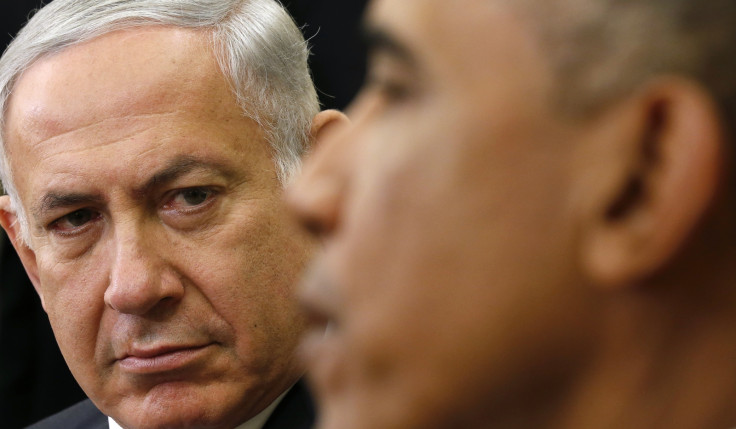Netanyahu speech: Does Bibi face oblivion if Congress gamble fails?

Prime Minister Benjamin Netanyahu is a bear of a man. He dominates the space around him. There are not many politicians in the world today who combine physicality with powerful oratory. But when the veteran Israeli Prime Minister addresses the US Congress about Iran's nuclear programme, he will be need to strain every rhetorical sinew to win over sceptics in Israel and Washington. Traditionally, Netanyahu's reputation was of a politician who plays it safe. Today represents his biggest political gamble.
The speech has been controversial from the start. The Republican Speaker of the House, John Boehner, defied convention by inviting a foreign head of government to address Congress without consulting the White House. Worse, the Israeli Prime Minister accepted the invitation without consulting the White House. The result was diplomatic embarrassment for President Barack Obama, and the absurd situation in which the White House Press Secretary knew about the visit weeks after the press.
Instead of rowing back, Netanyahu has rubbed salt in the diplomatic wounds. The White House is uncomfortable to be seen hosting Netanyahu so close to the Israeli general elections on 17 March. President Obama, most of the black caucus and a swathe of democrats (many of the Jewish), are all boycotting the address. The Vice President was so desperate to avoid it, he told the lobby he would be abroad, without knowing exactly where.
Netanyahu has ripped up convention, insulted the most powerful leader in the world, thrown in his lot with the Republicans and, some say, threatened to permanently damage the entrenched friendship between Israel and US. All for the sake of one speech. What makes it such a worthwhile gamble for Netanyahu? Ask those close to the Israeli Prime Minister, and they it comes down to two factors: belief and legacy. A prominent Western diplomat in the region was clear about the Prime Minister's rationale.
"The thing to remember about Bibi is he actually believes Iran is an existential threat to Israel," said the diplomat. "He's been obsessed with Iran for years. That's a major reason we [the West] could never get him to engage with the peace process, because his mind was always wondering about what the Ayatollahs were up to in Tehran." Examine Netanyahu's speeches in Europe and the US from 2008 to today, and Iran dominates.

Analysts agree that there have been questions around Iran's nuclear programme, and alleged support of terrorist organisations. Yet since 2013, Iran has clearly been more receptive to US-led negotiations to secure a nuclear deal. Netanyahu has looked increasingly isolated in his warning over the Iranian threat. Indeed, the Guardian reported last week that Netanyahu's own intelligence analysts contradicted his infamous "cartoon bomb" speech at the UN in 2012.
Borne of fear?
Netanyahu's belief in the threat to Israel from Iran is understood by some as a fear over his legacy. Netanyahu's family understands well that Israel's security comes with a price: his brother, Yonatan, was killed in the assault by Israeli Special Forces to free hostages from Uganda in 1976. The Prime Minister was deeply affected by the loss. Allies argue that his narratives of security and the cost of freedom are heartfelt. That Netanyahu wants to be remembered as the Prime Minister to secured Israel's security for generations.
Others scoff at such notions. Opponents argue that this speech has nothing to do with a deep fear about the future of Israel's security, and everything to do with short-termism and opportunism. They point to Netanyahu's flagging ratings in the business end of an election campaign, and to a deeply disheartened electorate that has seen the prospects for peace with the Palestinians grow more distant, and the cost of living skyrocket under Bibi's watch.
The narrative goes that Netanyahu is putting all his eggs in the "security" basket, presenting himself as the saviour of Israel – the lone hero who recognises the threat and is willing to stand, Spartan-like, against the might of the Persian Empire. That he is closing his ears to the clamour from Israeli warriors like Meir Dagan, the former head of Mossad who has called Netanyahu's policies on Iran "destructive to the future and security of Israel."
The reality is the Prime Minister is going to be aware that President Obama is not the most popular leader to his key constituencies in Israel. That primetime images of him addressing the US Congress about Iran will probably play very well outside of Tel Aviv, in Holon, Jerusalem, Bat Yam and Lod. If his appearance so close to polling day was going to be a net loss in terms of votes, he would never have flown to Washington.
The question now is whether the gamble will pay off. Win, and Netanyahu will secure re-election and may even force a pause in nuclear negotiations, and he will have a grateful Republican friend in the White House from 2016. Lose, and the veteran Israeli politician departs from the office with no legacy, and very few friends.
Ross Cypher-Burley is a former spokesman for the British ambassador to Israel, and now works for strategic communications firm Portland. You can follow him on Twitter here.
© Copyright IBTimes 2025. All rights reserved.






















